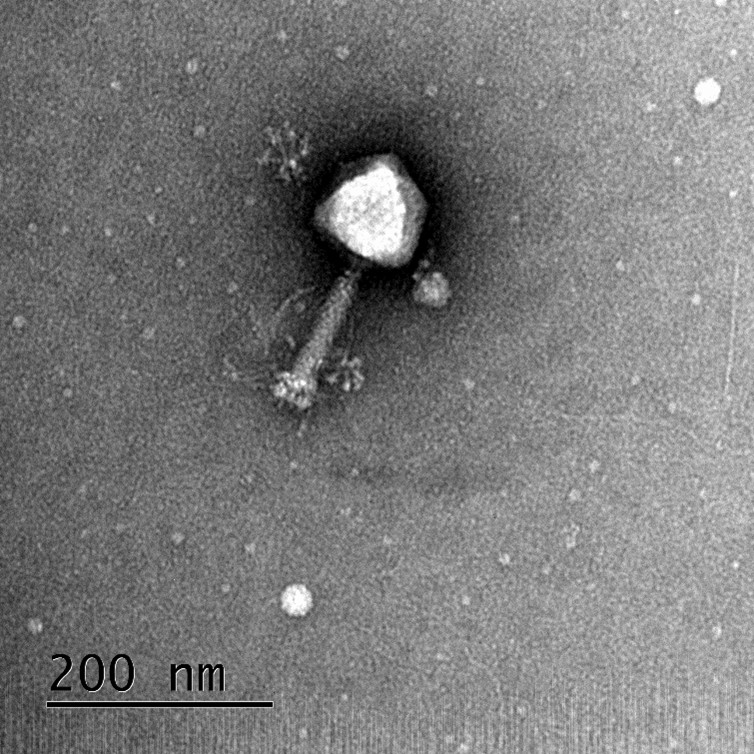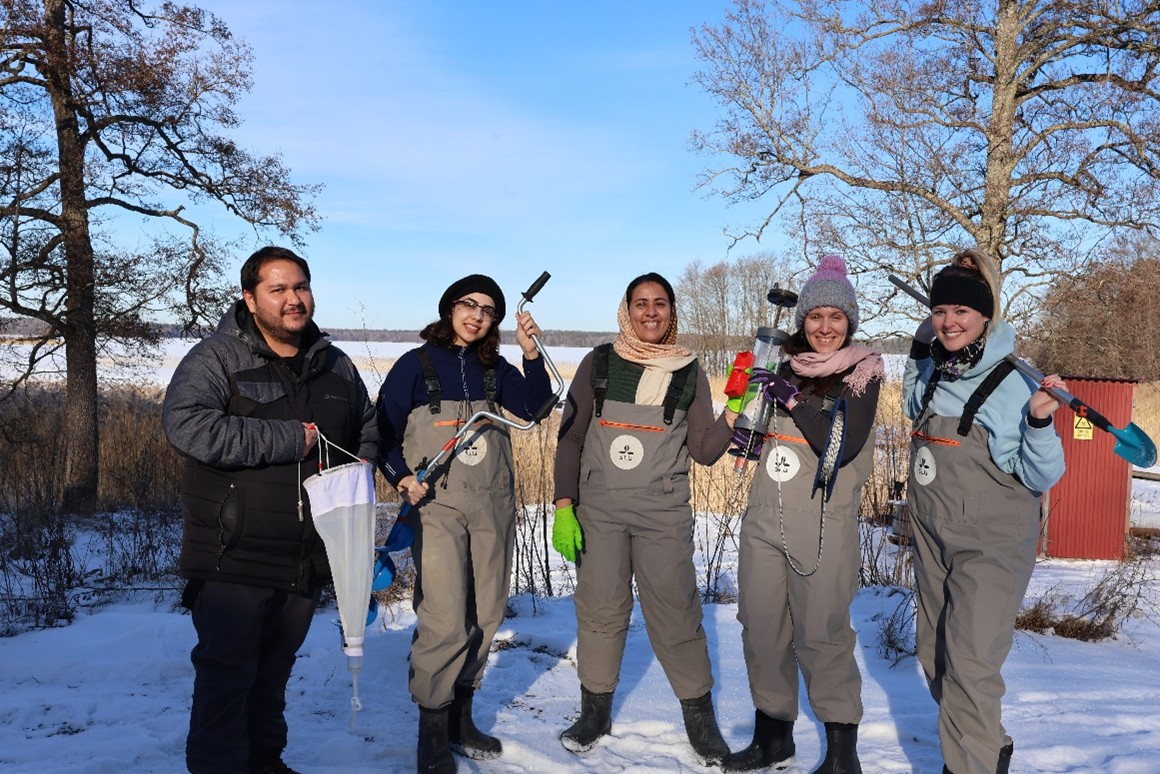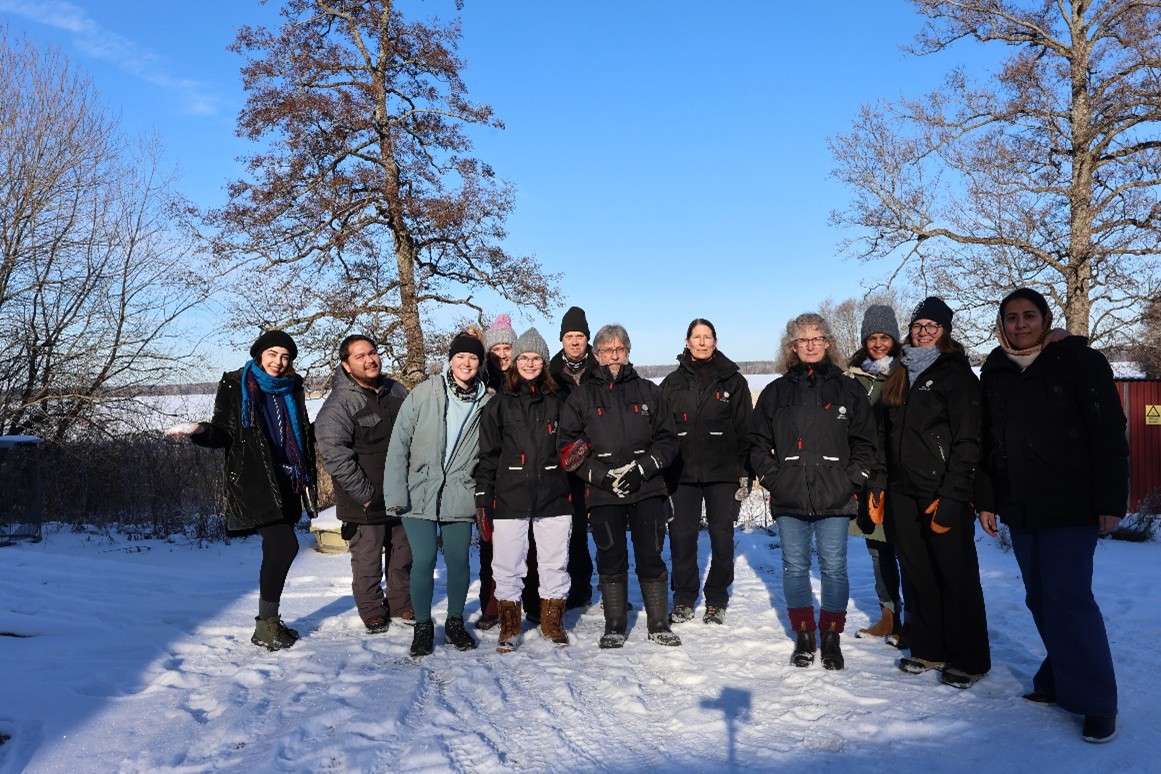All ecosystems including lakes are teeming with viruses that infect bacteria. These specific type of viruses are known as phages. Despite being very small, phages play a considerable role in modulating nutrient cycling in the lake environment through the impact they have on their bacterial hosts. Phages also contribute to transferring genes within the bacterial community and by doing so they affect evolutionary and ecological dynamics of their bacterial host. Many aspects of phage-bacteria interactions are still unknown and need specifically developed datasets. Maliheh Mehrshad and her team in her ERC starting project MULTIPHAGE are setting out to decipher how Phage co-infection affects co-evolutionary dynamics of phages and their bacterial host. Within MULTIPHAGE they have been sampling the lake Erken once a month since July 2024 to develop a long-term time series of cultures and metagenomes. They also ran a month long sampling campaign in January and February 2025 at the SITES Erken Laboratory. During this campaign, they collected samples twice a week from under the ice and in total processed 1.3 tons of lake water. In this dataset, the Bionomics-mmlab will combine metagenomics, metatranscriptomics, single cell genomics, metaHiC, and cultivation to provide a mechanistic understanding of phage-bacteria interactions and co-evolution in lake ecosystems.

Transmission electron microscope image of a phage collected from Lake Erken during the MULTIPHAGE#1 sampling campaign in January and February 2025 (photo: Maliheh Mehrshad)

Bionomics-mmlab team members involved in the MULTIPHAGE#1 sampling campaign from left: Vinicius Kavagutti, Zahra Goodarzi, Maliheh Mehrshad, Vesna Grujcic, Lauren Davies (photo: Maliheh Mehrshad)

Bionomics-mmlab team members involved in the MULTIPHAGE#1 sampling campaign together with the Erken Laboratory scientists and staff (photo: Maliheh Mehrshad)